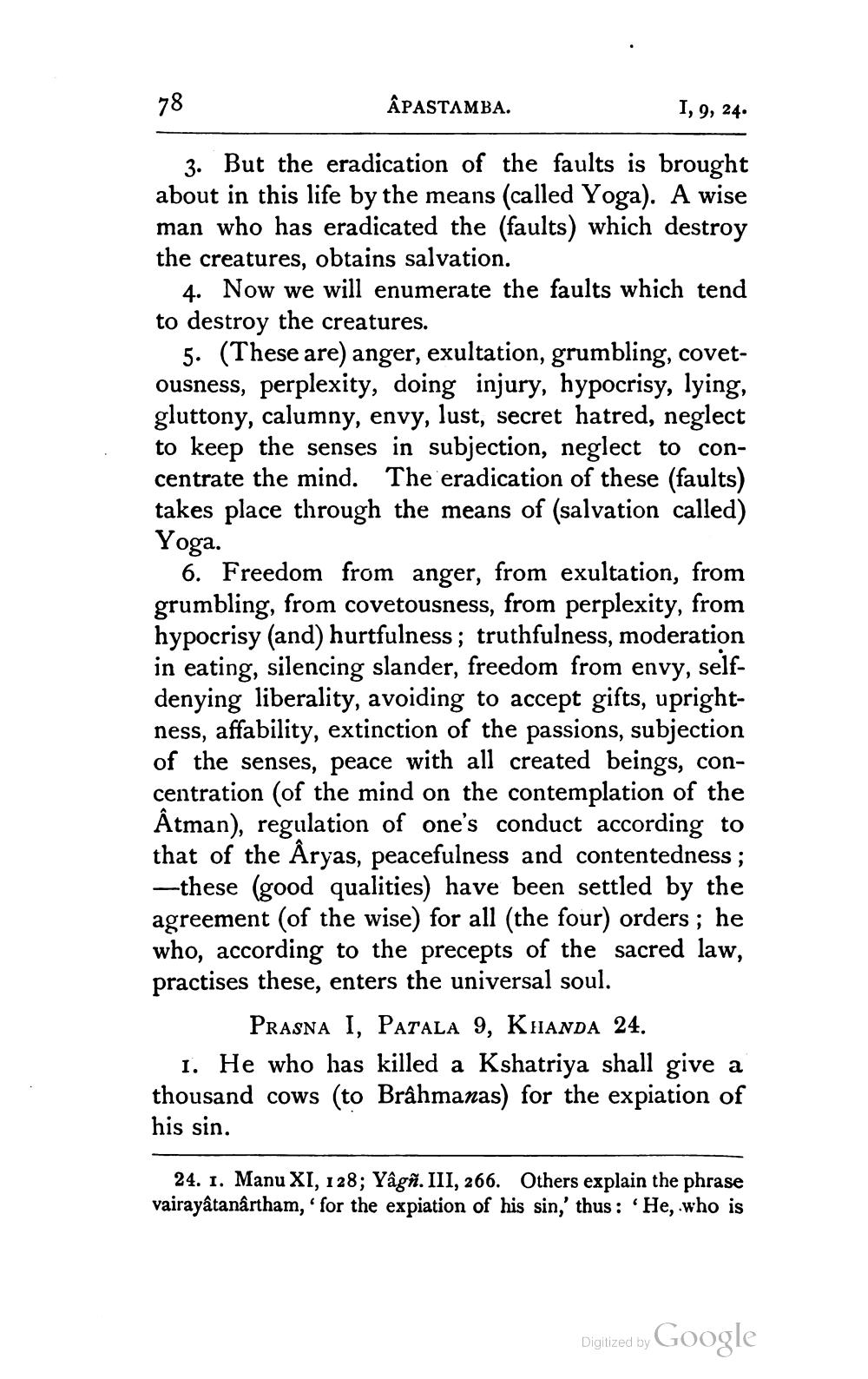________________
ÂPASTAMBA.
1, 9, 24.
3. But the eradication of the faults is brought about in this life by the means (called Yoga). A wise man who has eradicated the (faults) which destroy the creatures, obtains salvation.
4. Now we will enumerate the faults which tend to destroy the creatures.
5. (These are) anger, exultation, grumbling, covetousness, perplexity, doing injury, hypocrisy, lying, gluttony, calumny, envy, lust, secret hatred, neglect to keep the senses in subjection, neglect to concentrate the mind. The eradication of these (faults) takes place through the means of (salvation called) Yoga.
6. Freedom from anger, from exultation, from grumbling, from covetousness, from perplexity, from hypocrisy (and) hurtfulness; truthfulness, moderation in eating, silencing slander, freedom from envy, selfdenying liberality, avoiding to accept gifts, uprightness, affability, extinction of the passions, subjection of the senses, peace with all created beings, concentration (of the mind on the contemplation of the Atman), regulation of one's conduct according to that of the Âryas, peacefulness and contentedness; -these (good qualities) have been settled by the agreement (of the wise) for all (the four) orders ; he who, according to the precepts of the sacred law, practises these, enters the universal soul.
Prasna I, PATALA 9, Kuanda 24. 1. He who has killed a Kshatriya shall give a thousand cows (to Brâhmanas) for the expiation of his sin.
24. 1. Manu XI, 128; Yâgñ. III, 266. Others explain the phrase vairayâtanârtham,' for the expiation of his sin,' thus : 'He, who is
Digjized by Google




